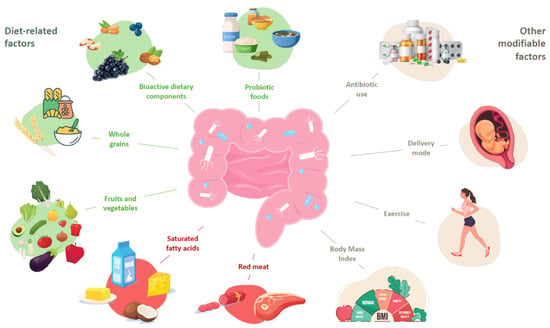Microbiome Modulation for Human Health (Closed)
A topical collection in Nutrients (ISSN 2072-6643). This collection belongs to the section "Prebiotics and Probiotics".
Viewed by 10011Editor
Interests: cirrhosis; microbiome; probiotic; prebiotic; sarcopenia
Special Issues, Collections and Topics in MDPI journals
Topical Collection Information
Dear Colleagues,
The term "probiotic" was coined by the Nobel prize winner Ilia Metchnikoff more than 100 years ago, who hypothesized that health could be enhanced and senility delayed by manipulating the intestinal microbiome with bacteria found in yogurt. The development of modern, culture-independent ways to study the microbiome composition at various sites within and outside the human body has greatly enlarged our knowledge on the role of the microbiome in health and disease. However, many of these studies are descriptive and report associations rather than causality. Furthermore, there is a high demand for therapeutic strategies that utilize or target the human microbiome to prevent or treat diseases and to understand the interaction of drugs with the human gut microbiome. With this Collection of the journal Nutrients, this knowledge gap should be filled by high-quality data on the effect of "Microbiome Modulation for Human Health".
Dr. Vanessa Stadlbauer-Köllner
Collection Editor
Manuscript Submission Information
Manuscripts should be submitted online at www.mdpi.com by registering and logging in to this website. Once you are registered, click here to go to the submission form. Manuscripts can be submitted until the deadline. All submissions that pass pre-check are peer-reviewed. Accepted papers will be published continuously in the journal (as soon as accepted) and will be listed together on the collection website. Research articles, review articles as well as short communications are invited. For planned papers, a title and short abstract (about 100 words) can be sent to the Editorial Office for announcement on this website.
Submitted manuscripts should not have been published previously, nor be under consideration for publication elsewhere (except conference proceedings papers). All manuscripts are thoroughly refereed through a single-blind peer-review process. A guide for authors and other relevant information for submission of manuscripts is available on the Instructions for Authors page. Nutrients is an international peer-reviewed open access semimonthly journal published by MDPI.
Please visit the Instructions for Authors page before submitting a manuscript. The Article Processing Charge (APC) for publication in this open access journal is 2900 CHF (Swiss Francs). Submitted papers should be well formatted and use good English. Authors may use MDPI's English editing service prior to publication or during author revisions.







